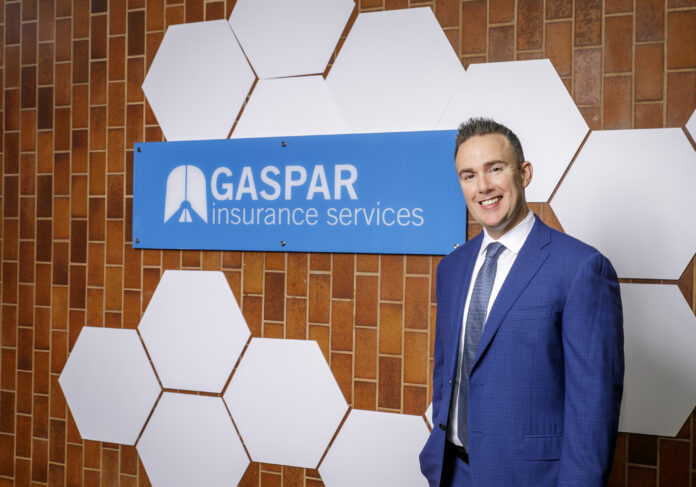Woodland Hills-based Gaspar Insurance Services, led by chief executive Timothy Gaspar, has been in business for 15 years. The firm works with more than 246 carriers and has locations in California, Arizona and New Jersey. In addition to insurance offerings in personal insurance, business insurance and life and health insurance, it also deals in dental practice, franchise protection and more. At the end of 2021, Gaspar Insurance Services joined insurance brokerage and consulting firm Foundation Risk Partners, which as of last year had a network of more than 135 insurance agencies in the United States. Gaspar Insurance Services operates under its own brand following the partnership.
How long have you worked in the insurance industry, and what did you do before working at your current firm?
I’ve been in the insurance industry for 19 years. I started Gaspar Insurance in 2008 and have been a lifelong entrepreneur. I had my first real business in high school with a bunch of those “Moonbounces” that kids jump in at parties and had a few other businesses after high school before going to college at night and getting into insurance.
Tell me about your role at your firm. What are your main responsibilities?
My role as CEO is to chart the direction of our firm and strategize how to best respond to the needs of our clients and community.
What is one of the most important professional lessons you’ve learned from your time in the industry?
Every business, insurance included, is about people. Your relationships will dictate the outcome in the vast majority of situations.
What do people get wrong about the insurance industry?
Pretty much everything, I’m afraid. I think people get two things wrong primarily. First, sometimes customers will assume the insurance company is out to deny claims. In reality, insurance companies are staffed by dads, grandfathers, moms, uncles, etc. These are generally good people who want to pay the claim. Second is the opinion that insurance is boring as a career, which is definitely not true.
What is a trend in the insurance industry that more people should be paying attention to? Why is it important?
Insurance premiums are going up significantly year after year, in huge part due to runaway litigation in our state and country. The size of lawsuits, and especially “nuclear verdicts,” is growing exponentially year over year. Nuclear verdicts are those judgements over $10 million, and they used to be a rarity. Nowadays, a verdict over $10 million is not that unusual. Any business that has a fleet of vehicles knows commercial auto premiums have gone up significantly and umbrella policies that give higher limits can be extremely expensive, if you can even get one. The thing is, insurance companies are actually making less money than they used to in the areas of commercial auto, personal auto and home insurance, and that’s if they make money at all.
How can an insurance firm best empower its employees?
Get out of your employees’ way and don’t bury them with rules.
What are some notable trends regarding one of your firm’s insurance specializations?
We specialize in a few industries, including franchises. In the franchise world attempts to hold franchisors responsible for the franchisee’s employees is a big issue. In the personal insurance space for auto and home, the state of California is becoming dangerously close to being uninsurable. California has had key insurance companies like AIG leave the state entirely because it’s very difficult to be profitable here. The auto insurance industry in California is an absolute crisis. The average consumer in California will see their personal auto insurance rates jump between 20% and 40% next year, and this will affect everyone. California has taken a lot of significant steps to protect consumers, but in the process has created an insurance market that is not a free market at all, and this has hurt consumers.
What is next for your firm?
Our team wakes up every day trying to figure out ways to be more responsive to our customers and team members. We are going to respond to the needs of those stakeholders, and they will decide what is next.
